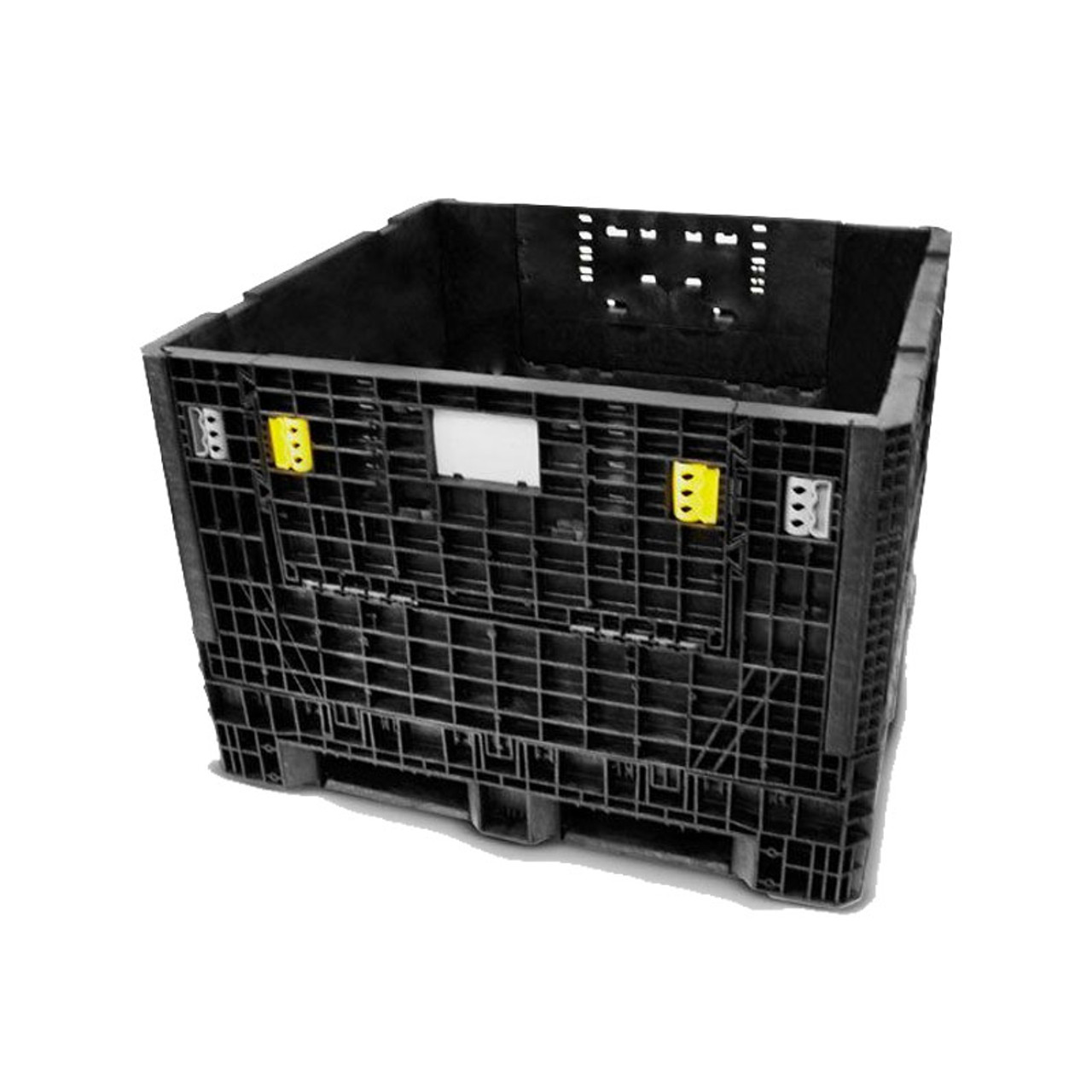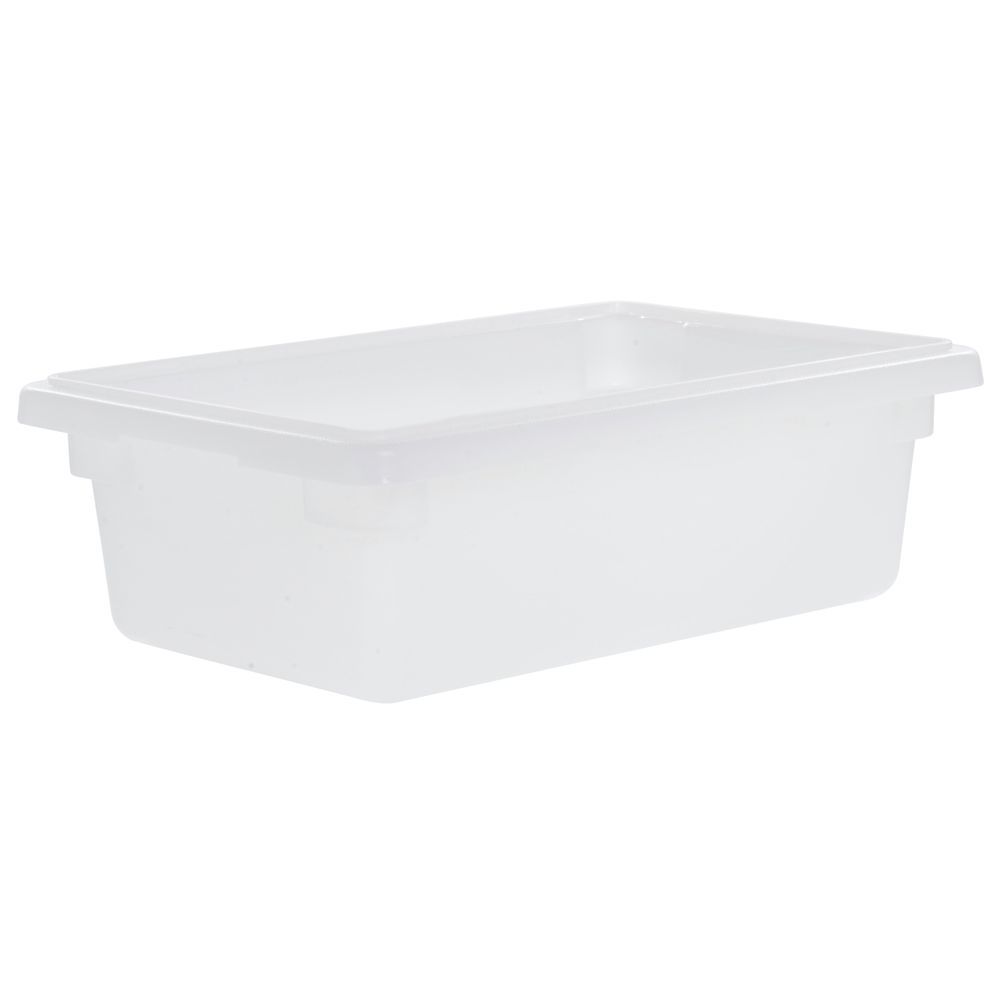A Comprehensive Overview to the Different Kinds of Mass Plastic Containers Available Today
Bulk plastic containers play a vital role in various industries, providing options for storage and transport. Their diverse types provide to various demands, from rigid options for strong products to versatile containers fitting different shapes. Each type presents distinct benefits, making it necessary to recognize their applications and functions. As industries progress, so do the demands for efficient container solutions. What variables should one take into consideration when choosing the best mass container?
Summary of Bulk Plastic Containers

Kinds Of Bulk Plastic Containers
Bulk plastic containers can be found in various types, each fit to details applications. Inflexible bulk containers, flexible bulk containers, and intermediate bulk containers stand for the primary classifications, each offering special advantages. Recognizing these kinds is crucial for selecting the ideal container for moving and saving products.

Rigid Mass Containers
Rigid bulk containers are essential for effective storage and transportation of various materials across markets. These containers are normally created from sturdy plastics, permitting them to stand up to extreme handling and ecological problems. They can be found in various sizes and shapes, including containers, drums, and totes, making them appropriate for storing everything from granular materials to liquids. Rigid containers usually feature reinforced wall surfaces and secure lids, ensuring the contents remain safeguarded during transit. Their stackable design optimizes storage room, making them suitable for warehouses and making centers. Furthermore, numerous inflexible mass containers are reusable and recyclable, adding to sustainability efforts. Overall, their effectiveness and adaptability make rigid mass containers an essential part in supply chain operations.
Adaptable Mass Containers
Flexible bulk containers, typically described as versatile intermediate bulk containers (FIBCs), function as a functional remedy for keeping a selection and carrying of completely dry products. These containers are commonly made from woven polypropylene and are designed to be light-weight yet strong, permitting effective handling and piling. Their versatility enables them to suit different forms and sizes, making them ideal for items ranging from grains to chemicals. FIBCs can be furnished with features such as spouts for very easy filling and discharge, in addition to safety coatings for improved longevity. Additionally, they are multiple-use and recyclable, adding to sustainable techniques in industries like farming, food processing, and building and construction. Generally, flexible mass containers offer a reliable and cost-effective option for bulk material administration.
Intermediate Mass Containers
Intermediate bulk containers (IBCs) are crucial for the efficient transport and storage of liquids and granular materials across different markets. These containers normally have an ability varying from 275 to 330 gallons and are designed for easy stacking and dealing with. Made from resilient materials like high-density polyethylene or steel, IBCs offer exceptional defense versus contamination and environmental elements. Their style includes features such as a built-in pallet for forklift access and a removable top for easy filling and cleansing. IBCs are extensively made use of in chemical, food, and pharmaceutical fields, guaranteeing compliance with security guidelines. Their convenience and reusability make them an economical option for mass storage and transport, contributing to supply chain efficiency and sustainability.
Attributes and Advantages of Bulk Plastic Containers
Bulk plastic containers are essential devices in different markets, providing a combination of durability and usefulness. These containers are built from premium materials, making them immune to influences, chemicals, and ecological factors. This toughness guarantees item safety throughout storage and transportation.
Additionally, mass plastic containers are lightweight, helping with ease of lowering and handling delivery expenses. Their stackable design optimizes storage space efficiency, allowing for optimized warehouse area. Several models include safe and secure covers or closures, offering an airtight seal that stops and protects materials contamination.
Bulk plastic containers are commonly recyclable and recyclable, adding to lasting practices. Their adaptability permits for a wide variety of applications, from food storage space to industrial use, improving their value throughout fields. Businesses gain from the long life-span and low maintenance requirements of these containers, making them a cost-effective service for both lasting and temporary needs.
Industries That Use Bulk Plastic Containers
Different markets gain from using mass plastic containers, each leveraging their one-of-a-kind properties for particular applications. The food and drink market counts on these containers for safe storage and transport of products, while the chemical production sector utilizes them for dealing with harmful products. In addition, the pharmaceutical distribution needs emphasize the relevance of longevity and sanitation in product packaging solutions.
Food and Beverage Industry
As the need for reliable and secure storage space options remains to rise, the food and drink sector significantly depends on bulk plastic containers for their operational demands. These containers supply robust, lightweight, and versatile alternatives for saving active ingredients, ended up products, and waste materials. Made from food-grade products, they assure conformity with wellness and safety and security criteria. Different styles, such as stackable containers and carry boxes, optimize room throughout transport and storage, boosting logistical effectiveness. In addition, the transparency of some mass containers enables simple stock administration, reducing the danger of spoilage. With the industry's emphasis on sustainability, numerous producers are currently providing recyclable and recyclable options, lining up with environmentally friendly techniques while satisfying the high demands of food security and health.
Chemical Manufacturing Market
The chemical production industry counts heavily on mass plastic containers for the safe and effective storage space of basic materials, intermediates, and completed items. These containers are designed to withstand different chemicals, ensuring that dangerous products do not leakage or degrade the container itself. Typical kinds consist of high-density polyethylene (HDPE) and polypropylene containers, which use excellent chemical resistance and resilience. Their light-weight nature and stackable layout facilitate transportation and storage space, maximizing room in manufacturing facilities. Additionally, lots of mass plastic containers feature features such as tamper-evident seals and easy-to-read labeling, enhancing security and compliance with market laws. Overall, bulk plastic containers are essential to the chemical manufacturing process, supplying trusted services for handling diverse compounds.
Pharmaceutical Circulation Requirements
Drug distribution relies upon bulk plastic containers to fulfill rigid safety and regulatory requirements. These containers are necessary for saving a range and delivering of pharmaceutical items, including active pharmaceutical ingredients (APIs) and finished drugs. Their design guarantees defense versus contamination, dampness, and light, keeping the honesty of sensitive materials. In addition, mass plastic containers are compliant with industry criteria such as Great Production Practices (GMP) and are commonly made from materials that are FDA-approved. Using these containers boosts performance in the supply chain, enabling for safe, large distribution while minimizing waste. Firms in the pharmaceutical market prioritize making use of sturdy, leak-proof, and tamper-evident containers to guarantee item safety and top quality throughout the logistics process.
Considerations for Selecting the Right Container
When selecting the ideal bulk plastic container, various aspects have to be meticulously evaluated to guarantee excellent performance and safety. The nature of the products to be kept is paramount; compatibility with the container's material can affect stability and safety and security. bulk plastic containers for sale. Furthermore, the container's dimension and shape have to align with the storage space and transportation needs, assuring effective room usage
Lots capacity is an additional vital factor to consider, as it should fit the weight of materials without risk useful site of damage or failing. The layout features, such as airing vent or lids, can impact use and access. Compliance with market guidelines is essential, especially in sectors like pharmaceuticals, where security criteria are rigorous.
The anticipated life-span and durability of the container ought to be examined to validate it fulfills the functional demands without constant substitute. By evaluating these elements, one can choose one of the most ideal mass plastic container for specific applications.
Environmental Impact and Sustainability
As companies progressively focus on sustainability, the environmental effect of mass plastic containers has actually come under scrutiny. These containers, frequently made from materials such as polyethylene or polypropylene, add greatly to plastic waste otherwise taken care of properly. Their manufacturing entails the intake of nonrenewable fuel sources, which can bring about raised greenhouse gas exhausts. Nevertheless, improvements in reusing modern technology and the growth of eco-friendly choices are assisting to reduce these concerns.
Several makers are adopting techniques that highlight the usage of recycled products, thereby minimizing the need for virgin plastics. The durability of mass plastic containers also this hyperlink plays a duty; they are designed to be reused multiple times, which can lessen their total environmental impact when contrasted to single-use alternatives. Eventually, the industry deals with the challenge of stabilizing functionality with environmental responsibility, making lasting practices necessary for the future of bulk plastic containers.
Finest Practices for Storage Space and Transportation
Efficient storage space and transportation of bulk plastic containers significantly influence both functional effectiveness and sustainability. To make best use of space, companies need to stack containers securely, guaranteeing security and preventing damages. Proper labeling is necessary for very easy identification, which enhances access procedures. Additionally, preserving a organized and clean storage location minimizes the danger of contamination and enhances security.
For transport, choosing the best lorry is essential; containers need to be safeguarded to stay clear of moving throughout transportation. Firms must likewise think about making use of pallets to promote less complicated loading and unloading. Routine examinations of containers for deterioration can avoid pricey replacements.
Temperature control is one more important element, as extreme conditions can endanger the honesty of the plastic. Finally, training personnel on ideal practices for taking care of and transportation guarantees conformity and promotes a culture of security. By implementing these ideal practices, companies can boost their functional performance while adding to environmental sustainability.
Frequently Asked Inquiries
Just how Do I Clean Bulk Plastic Containers Efficiently?
To tidy mass plastic containers successfully, one must wash them with cozy water, use a mild detergent and scrub with a soft brush. Wash thoroughly, then enable to air completely dry completely before storage or reuse.
What Is the Lifespan of Bulk Plastic Containers?
The lifespan of mass plastic containers generally varies from 5 to ten years, depending upon the product, usage, and environmental conditions. Proper upkeep and storage space can considerably extend their usability and sturdiness gradually.
Can Bulk Plastic Containers Be Customized?

Do Bulk Plastic Containers Have Guarantee Options?

Are There Rules for Utilizing Bulk Plastic Containers?
Yes, regulations exist for using mass plastic containers, largely concentrated on security, environmental impact, and material compliance. These guidelines assure that containers meet market standards and are ideal for transporting different substances securely and successfully.
Rigid mass containers, flexible bulk containers, and intermediate bulk containers stand for the key categories, each offering distinct advantages. Adaptable bulk containers, frequently referred to as flexible intermediate bulk containers (FIBCs), offer as check a versatile solution for transferring and storing a range of completely dry products. The chemical production field depends greatly on bulk plastic containers for the risk-free and efficient storage of raw products, intermediates, and completed products. Bulk Plastic Containers. These containers are developed to endure different chemicals, making sure that unsafe materials do not leakage or deteriorate the container itself. Furthermore, mass plastic containers are certified with industry standards such as Good Manufacturing Practices (GMP) and are usually made from materials that are FDA-approved